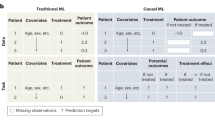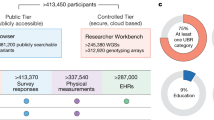Abstract
Pharmacogenomics (PGx) is a research area aimed at identifying genetic factors that are associated with drug responses, including drug efficacy, adverse drug reactions, and the appropriate drug dosage on a case-to-case basis. To promote the clinical implementation of PGx testing, which is currently of limited use in clinical practice, recent research has focused on providing reliable evidence for its clinical utility. In neurology, psychiatry, and neurosurgery, several human leukocyte antigen (HLA) alleles have been reportedly associated with cutaneous adverse drug reactions (cADRs) induced by antiepileptic drugs, which significantly carry the risk of developing cADRs. Prior to using antiepileptic drugs such as carbamazepine and lamotrigine, which are prone to cause severe cADRs, preemptive HLA genetic testing and therapeutic interventions such as drug selection and dosage adjustment based on the results of the tests can reduce the incidence of cADRs in the population before the initiation of treatment.
This is a preview of subscription content, access via your institution
Access options
Subscribe to this journal
Receive 12 print issues and online access
$259.00 per year
only $21.58 per issue
Buy this article
- Purchase on Springer Link
- Instant access to full article PDF
Prices may be subject to local taxes which are calculated during checkout

Similar content being viewed by others
References
Pharmaceuticals and Medical Devices Agency, Japan. Annual Report FY 2019. Available from https://www.pmda.go.jp/files/000240772.pdf.
Pharmaceutical and food safety bureau, Ministry of Health, Labour and Welfare, Japan. Pharmaceuticals and Medical Devices Safety Information 2012. Available from https://www.pmda.go.jp/files/000153540.pdf.
Yang SC, Chen CB, Lin MY, Zhang ZY, Jia XY, Huang M, et al. Genetics of severe cutaneous adverse reactions. Front Med (Lausanne). 2021;8:652091.
Matzaraki V, Kumar V, Wijmenga C, Zhernakova A. The MHC locus and genetic susceptibility to autoimmune and infectious diseases. Genome Biol. 2017;18:76.
Chung WH, Hung SI, Hong HS, Hsih MS, Yang LC, Ho HC, et al. Medical genetics: a marker for Stevens–Johnson syndrome. Nature 2004;428:486.
Ozeki T, Mushiroda T, Yowang A, Takahashi A, Kubo M, Shirakata Y, et al. Genome-wide association study identifies HLA-A*3101 allele as a genetic risk factor for carbamazepine-induced cutaneous adverse drug reactions in a Japanese population. population. Hum Mol Genet. 2011;20:1034–41.
McCormack M, Alfirevic A, Bourgeois S, Farrell JJ, Kasperavičiūtė D, Carrington M, et al. HLA-A*3101 and carbamazepine-induced hypersensitivity reactions in Europeans. N. Engl J Med. 2011;364:1134–43.
Deng Y, Li S, Zhang L, Jin H, Zou X. Association between HLA alleles and lamotrigine-induced cutaneous adverse drug reactions in Asian populations: a meta-analysis. Seizure 2018;60:163–71.
Manuyakorn W, Siripool K, Kamchaisatian W, Pakakasama S, Visudtibhan A, Vilaiyuk S, et al. Phenobarbital-induced severe cutaneous adverse drug reactions are associated with CYP2C19*2 in Thai children. Pediatr Allergy Immunol. 2013;24:299–303.
Kaniwa N, Sugiyama E, Saito Y, Kurose K, Maekawa K, Hasegawa R, et al. Specific HLA types are associated with antiepileptic drug-induced Stevens–Johnson syndrome and toxic epidermal necrolysis in Japanese subjects. Pharmacogenomics 2013;14:1821–31.
Guberman AH, Besag FM, Brodie MJ, Dooley JM, Duchowny MS, Pellock JM, et al. Lamotrigine-associated rash: risk/benefit considerations in adults and children. Epilepsia 1999;40:985–91.
Alfares I, Javaid MS, Chen Z, Anderson A, Antonic-Baker A, Kwan P. Sex differences in the risk of cutaneous adverse drug reactions induced by antiseizure medications: A systematic review and meta-analysis. CNS Drugs. 2021;35:161–76.
Chen P, Lin JJ, Lu CS, Ong CT, Hsieh PF, Yang CC, et al. Carbamazepine-induced toxic effects and HLA-B*1502 screening in Taiwan. N. Engl J Med. 2011;364:1126–33.
Mushiroda T, Takahashi Y, Onuma T, Yamamoto Y, Kamei T, Hoshida T, et al. Association of HLA-A*31:01 Screening With the Incidence of Carbamazepine-Induced Cutaneous Adverse Reactions in a Japanese Population. JAMA Neurol Assoc HLA-A. 2018;75:842–9.
Tashiro Y, Azukizawa H, Asada H, Niihara H, Morita E, Yamauchi T, et al. Drug-induced hypersensitivity syndrome/drug reaction with eosinophilia and systemic symptoms due to lamotrigine differs from that due to other drugs. J Dermatol. 2019;46:226–33.
Su SC, Chen CB, Chang WC, Wang CW, Fan WL, Lu LY, et al. HLA alleles and CYP2C9*3 as predictors of phenytoin hypersensitivity in East Asians. Clin Pharm Ther. 2019;105:476–85.
Hikino K, Ozeki T, Koido M, Terao C, Kamatani Y, Mizukawa Y, et al. HLA-B*51:01 And CYP2C9*3 Are Risk Factors for Phenytoin-Induced Eruption in the Japanese Population: Analysis of Data from the Biobank Japan Project. Clin Pharm Ther. 2020;107:1170–8.
Chang CC, Too CL, Murad S, Hussein SH. Association of HLA-B*1502 allele with carbamazepine-induced toxic epidermal necrolysis and Stevens–Johnson syndrome in the multi-ethnic Malaysian population. Int J Dermatol. 2011;50:221–4.
Locharernkul C, Loplumlert J, Limotai C, Korkij W, Desudchit T, Tongkobpetch S, et al. Carbamazepine and phenytoin induced Stevens–Johnson syndrome is associated with HLA-B*1502 allele in a Thai population. Epilepsia 2008;49:2087–91.
Man CB, Kwan P, Baum L, Yu E, Lau KM, Cheng AS, et al. Association between HLA-B*1502 allele and antiepileptic drug-induced cutaneous reactions in Han Chinese. Epilepsia 2007;48:1015–8.
Kaniwa N, Saito Y, Aihara M, Matsunaga K, Tohkin M, Kurose K, et al. HLA-B*1511 is a risk factor for carbamazepine-induced Stevens–Johnson syndrome and toxic epidermal necrolysis in Japanese patients. Epilepsia 2010;51:2461–5.
Mockenhaupt M, Wang CW, Hung SI, Sekula P, Schmidt AH, Pan RY, et al. HLA-B*57:01 confers genetic susceptibility to carbamazepine-induced SJS/TEN in Europeans. Allergy 2019;74:2227–30.
Acknowledgements
This work was supported by the Project for Development of Innovative Research on Cancer Therapeutics and Tailor-made Medical Treatment Program (BioBank Japan Project) funded by the Ministry of Education, Culture, Sports, Science, and Technology of Japan and Labor Sciences Research Grants from the Ministry of Health, Labor, and Welfare of Japan (H26-nanchi(nan)-ippan-081).
Author information
Authors and Affiliations
Corresponding author
Ethics declarations
Competing interests
The author declares no competing interests.
Additional information
Publisher’s note Springer Nature remains neutral with regard to jurisdictional claims in published maps and institutional affiliations.
Rights and permissions
About this article
Cite this article
Mushiroda, T. Avoidance of cutaneous adverse drug reactions induced by antiepileptic drugs based on pharmacogenomics. J Hum Genet 68, 227–230 (2023). https://doi.org/10.1038/s10038-022-01040-1
Received:
Revised:
Accepted:
Published:
Issue Date:
DOI: https://doi.org/10.1038/s10038-022-01040-1



